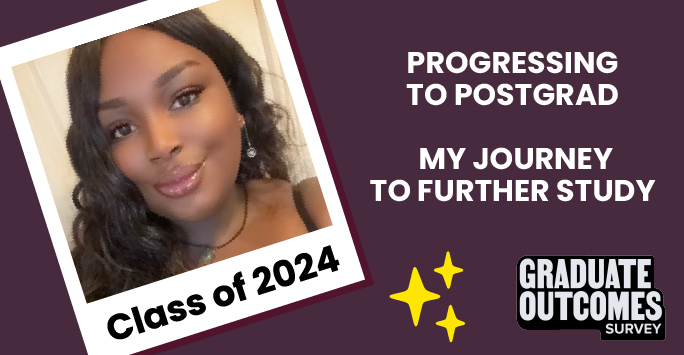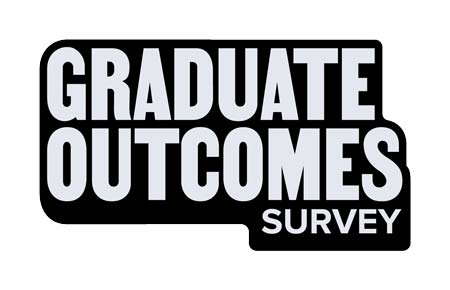Progress to Postgrad: Ida
Posted on: 25 August 2025 by Richard Finch in Class of 2024

Ida Jobe is a Class of 2024 Master of Biological Sciences with a Year Abroad graduate who in now a University of Cambridge PhD Student in Pathology.
How did you hear about your course?
I found out about the Biosciences PhD programme at Cambridge through an internship as part of the Experience Postgraduate Life Sciences scheme run by the School of Biological Sciences.
During the placement, I spent time in Professor Louise Boyle’s lab, where I learned new techniques, carried out experiments, troubleshooted, and got a real sense of what research at this level involves. The experience helped me see how much I enjoyed the process of learning, problem-solving, and contributing to ongoing scientific work. It confirmed that a PhD was the right next step for me, and that Cambridge—especially given its supportive and collaborative research environment—was where I wanted to pursue it.
How did you get to where you are now?
My journey to this point has been shaped by a strong interest in biology and a growing desire to contribute to therapeutics that can improve lives. I hadn’t seriously considered doing a PhD until the summer of my second year, when I joined Professor Louise Boyle’s lab through the Experience Postgraduate Life Sciences internship at Cambridge. That hands-on research experience completely shifted my perspective—I found real excitement in the process of learning, problem-solving, and contributing to ongoing scientific work.
Further research experiences in both academia and industry helped solidify that interest. At the University of Liverpool, I took part in a year abroad, a year in industry, and several placements that gave me a broad understanding of the research landscape. I was fortunate to have the support of key mentors, including Dr Rachel Floyd, my Head of Year, who provided unwavering guidance throughout my studies, and Dr Murielle Baltazar, my undergraduate project supervisor, whose belief in me during my research helped build my confidence.
Together, these experiences and support helped me realise that pursuing a PhD wasn’t just possible—it was the right next step toward making a meaningful impact through science.
Your favourite thing about your current course?
My favourite part of the PhD so far has been the independence in navigating my own research journey. Being able to explore questions and areas that truly interest me—not only within my PhD research but also beyond it, such as in science policy—while knowing I have support available whenever I need it is amazing! Having that balance of autonomy and guidance has been really empowering.
Alongside this, the collaborative nature of the science here means I’m constantly learning from and working with talented researchers across different fields. Cambridge’s vibrant academic environment—with its regular seminars, conferences, symposiums, and talks—provides fantastic opportunities to stay connected to the latest developments and broaden my perspective beyond my own project.
It’s exciting to be at the centre of such a dynamic research community, where innovation and ideas are always evolving.
The most challenging part of your graduate journey?
There are many different facets to a PhD that make it challenging (though rewarding)! It involves constant learning and expanding your skill set, which is exciting but can also be tiring. Experiments don’t always work as planned, so resilience is essential. There’s always something new to learn or papers to read, which keeps you on your toes but can sometimes feel overwhelming. It’s also important to make sure you’re getting enough rest to maintain your wellbeing.
For me, the most challenging part so far has been knowing when to recognise that an approach is not working—and having the flexibility and judgement to pivot to something more promising. This applies not only within the lab but also outside of it, such as adjusting my project direction, balancing my workload or organising my time. Developing that ability to adapt has been integral to making steady progress and staying motivated throughout the PhD journey.
Could you share one tip you wish you knew before you started
My #1 piece of advice for future grads is to stay open-minded about opportunities—even those you might feel uncertain about at first. Whether it’s an internship, a training course, or a chance to try something outside your comfort zone, I encourage you to take it. You never know when an unexpected experience might ignite a new passion or completely reshape your career direction. For me, such moments were pivotal in defining my path and motivating me to pursue a PhD.
At the same time, it’s crucial to prioritise your wellbeing throughout this journey. Hard work is important, but so is rest and self-care. Balancing both will help you maintain resilience and keep your enthusiasm alive over the long haul.
Graduate+
Graduate+ is just for University of Liverpool finalists and graduates. It's a new way to stay connected, get career support, build the right skills and experiences, and hear about exclusive career opportunities in Liverpool, the UK, and beyond. Let us help you get the job that you deserve!
Graduate Outcomes Survey
The Graduate Outcomes survey exists to improve the experience of future students. All graduates are asked to share their perspectives 15 months after they finish their course, to build a national picture that UK universities and colleges use to innovate their services. League tables, Prospects and The Complete University Guide use our Graduate Outcomes data to help students make decisions about their future.

Keywords: Graduate, Class of 2024, progress to postgraduate.